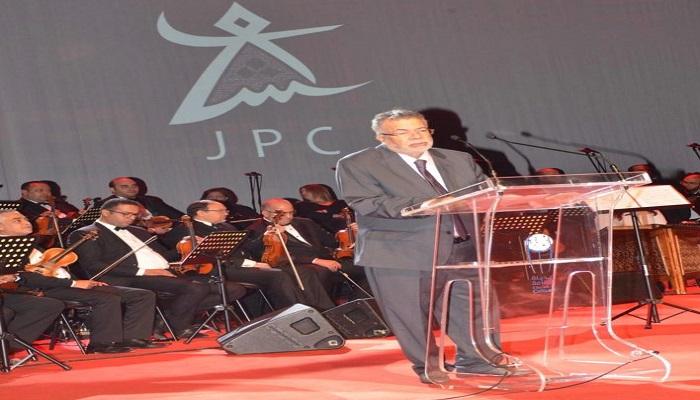
[ad_1]

Habib Sayegh inaugurates "Days of Carthage Poetry" in Tunisia
The second edition of "Days of Carthage Poetry" is held in the opera room of the City of Culture in Tunis, from March 22 to 29, in which participated 90 poets from Tunisia , from the Arab world, from Africa and from Europe.
Tunisian Minister of Cultural Affairs Mohamed Zine El Abidine and Rashid Mohamed El Mansouri, Ambassador of the United Arab Emirates to Tunisia, as well as several ministers, ambassadors and heads of diplomatic missions, as well as many Tunisian and Arab intellectuals, writers and poets as well as representatives of national and Arab media.
The creation of Carthage Poetry Days is today considered one of the most important achievements of Tunisia, by dedicating the principle of "arts democracy" so that the days of Carthage are not not exclusive to cinema, theater and music.
For her part, the director of the poet Al-Ayyam, Jamila Al-Majri, hailed the creation of this event, which embodies the slogan of "poetry at the highest level of literature", and hailed the conviction of Tunisia as to the importance of this art and the achievement of generations of Tunisian poets.
She said that Tunisians Zaytuna, Kairouan, Qartaj, Tunisians Ibn Rushiq, Al-Hasri and Ibn Manour were celebrating poetry and poetry today to celebrate life and considered that the growing number of poets and the mobility of translation testified to the importance of poetry and its role in the era of the tyranny of technology.
After this, the great Emirati poet Habib Sayegh, general secretary of the General Confederation of Arab Writers and Authors, opened the festival of poetry during 10 poetry evenings with a brief speech in which he stressed that Tunisia had begun its celebrations as the capital of Islamic culture for the year 2019. It welcomes today dozens of poets from the Arab world And the world for a week at the time of Carthage poetry, saying: C is a country that cherishes culture and poetry, it is a country worthy of life.
Habib al-Sayegh began reading the poetry festival with his poem "To Badr Shaker al-Sabab on the occasion of his fiftieth birthday", which would have been mentioned by Sayab in his own way and considered a tribute to all poets present and absent. In a difficult but fluid installation, issues related to Arab issues were raised at the political and cultural levels, in the form of a dialogue with the late poet Badr Shaker al Sayyab.
It says in the poem:
After fifty years of death
What does the haircut want?
What breaks the light in the darkness of the grave
His cloud passed through his eyes, and the worm awoke
"He spoke to me 50 years later
And he did not find shadow instead of shadow
He has tried to recover the writing, but he does not feel the same thing in himself and has a latent cause in the evening that will die like tears, tears of heart.
Say to answer Sayab questions:
If you loved Laila crazy too
How did you endure fifty years?
And you travel in death without it?
To the last question that concluded the poem:
What do you think, Badr?
In the tomb of the grave
A poem or a poem?
Critics and poets have seen the poem Sayegh in Sayab, whose Iraqi actor and director Hussein Ali Harf was a professor of visual arts at Baghdad University, turned into a melodrama with l & # 39; opening of the Al-Marbad festival in Basra (2018), establishing a new phase of the modernity of the Arab poet, Towards an experimentation as if it carved language, content and form, with boldness in the adaptation of poetry and prose, including the usual press news, to be a living and active part of the movement of the poem.
And poetry and music have turned the space of opera-theater in the city of culture in Tunisia into a forum that has witnessed the interaction between poetry, singing and the singing with the National Ensemble of Arab Music conducted by Maestro Abdel Rahman Al-Ayadi, where poetry readings of the poet Mohamed El Ghazi / Tunisia, Sami Mahdi / Iraq, Rashed Issa / Jordan and Shamsa Al-Numani / Sultanate d & # 39; Oman.
Source link